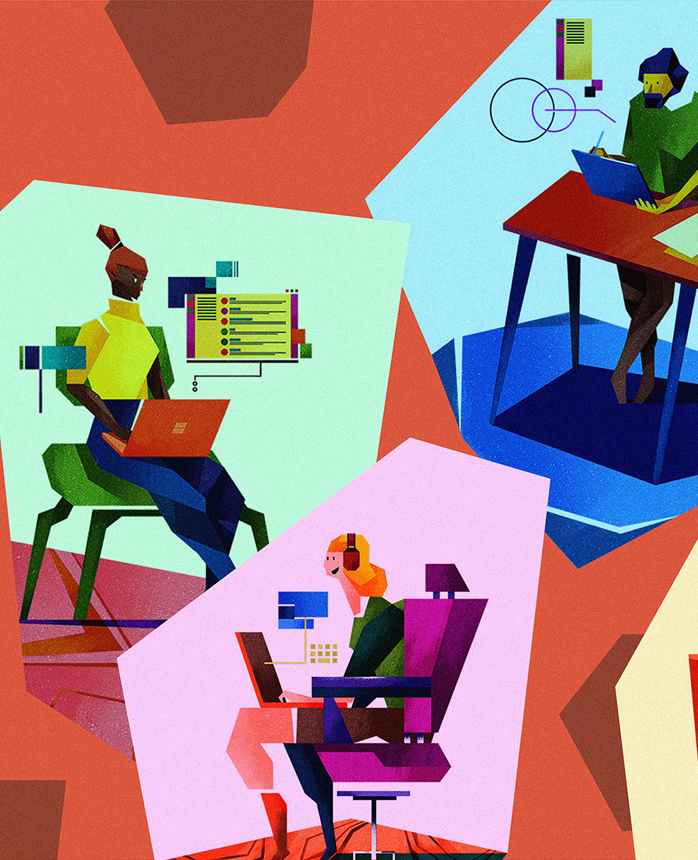Program Overview
The Covid-19 pandemic (and the fear it inspires) has wreaked havoc on our established ways of living and working. Employees of organizations with large offices or networks of offices face especially exceptional disruptions, as they find themselves suddenly at home, trying to work. When the pandemic hit, teams of all sizes, in every corner of the world launched into a crash course in remote work. And many aren't passing the test. Technology and data security choices are confusing. Communication feels inefficient. Collaboration is slowing down. Tensions are rising.
At first glance, it seems like a technology challenge. But that's not quite true. The technology can have issues, yes, but it's not the cause of the big, hairy problems that threaten to slow down productivity and innovation as we transition en masse to virtual work.
For the past five years our team at Nomadic Learning has built digital programs that have helped tens of thousands of employees at organizations around the world—from Fortune 500 to new start-ups—make the transition to remote work. The Remote Work Bootcamp is based on what we learned.
